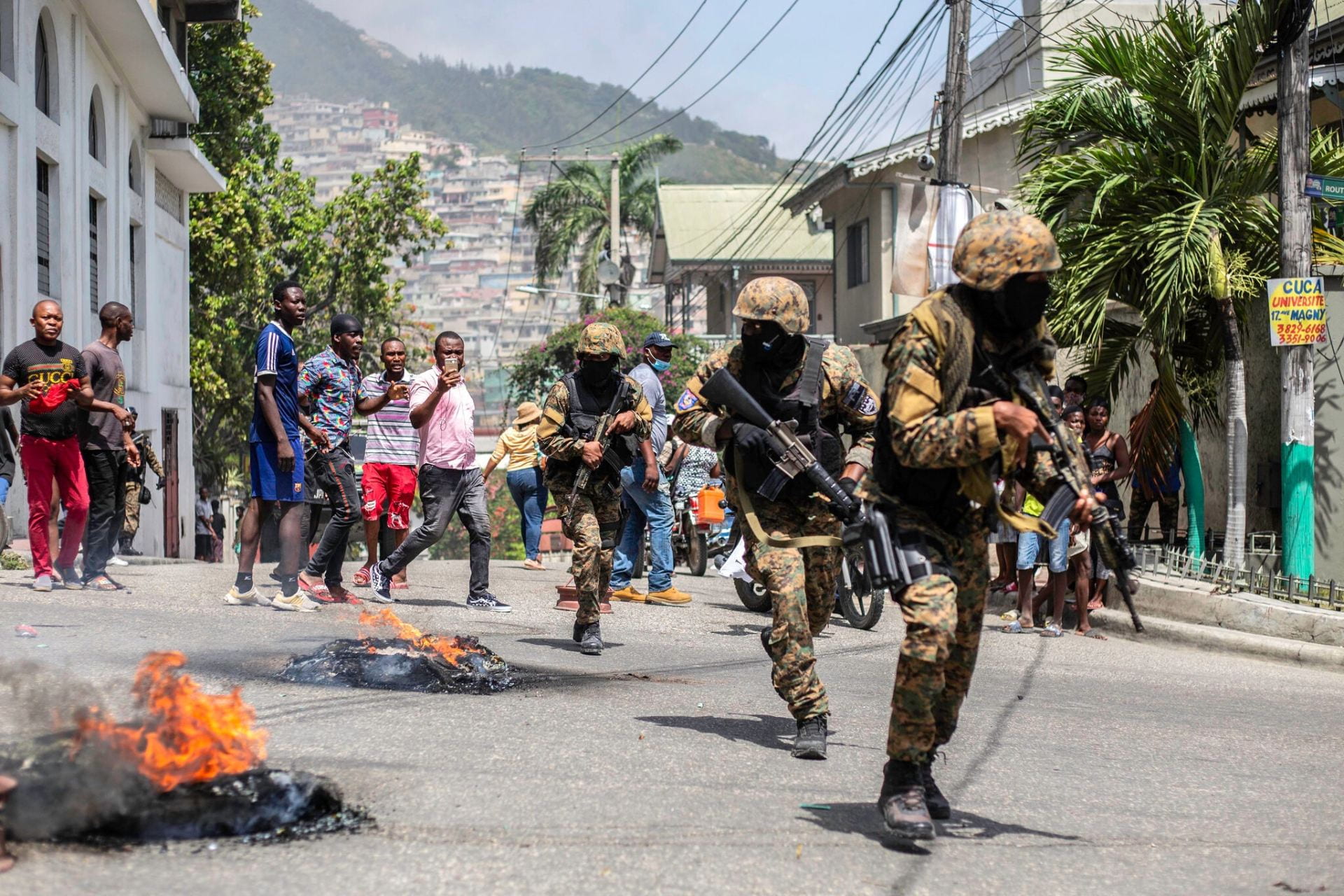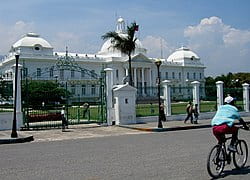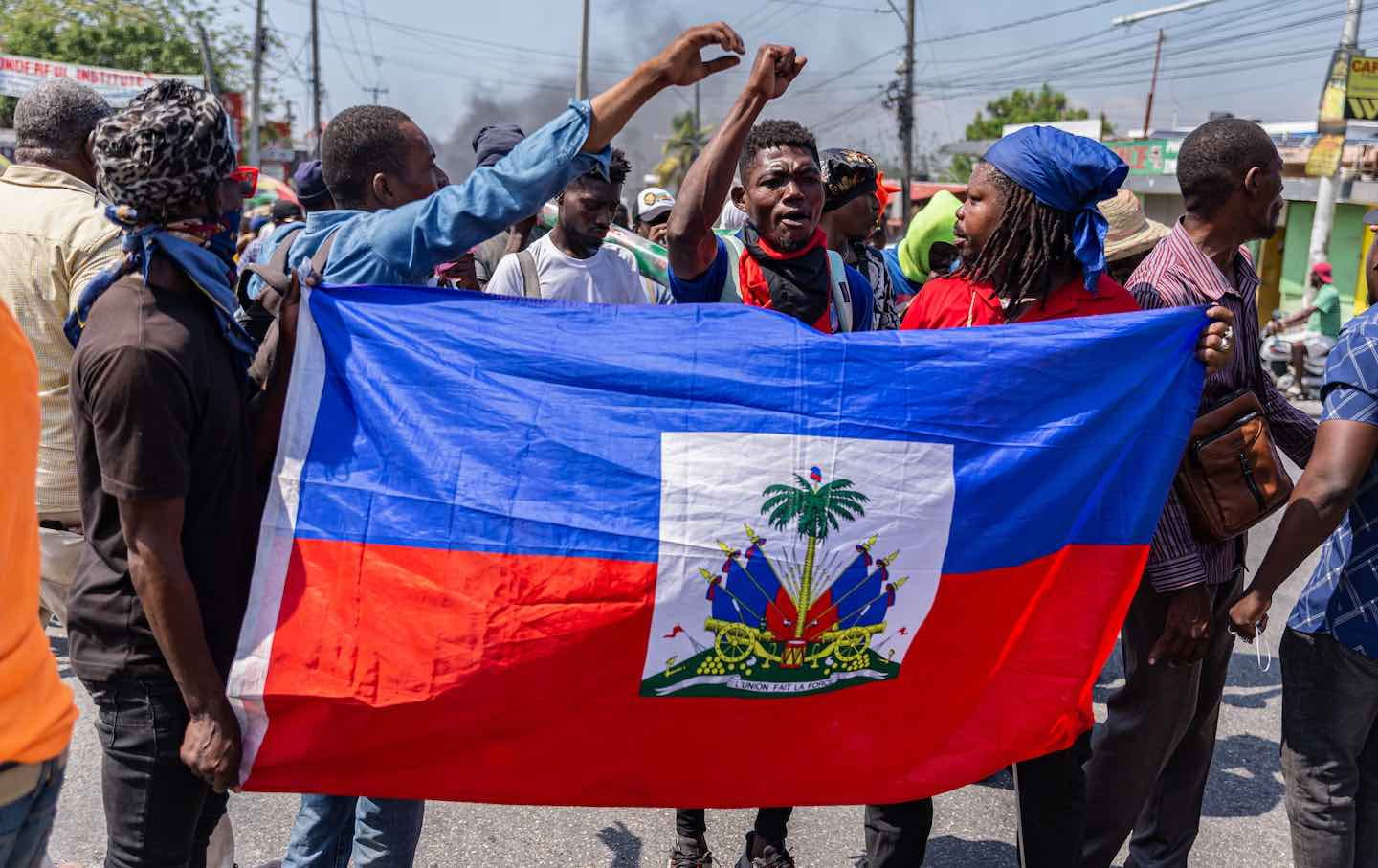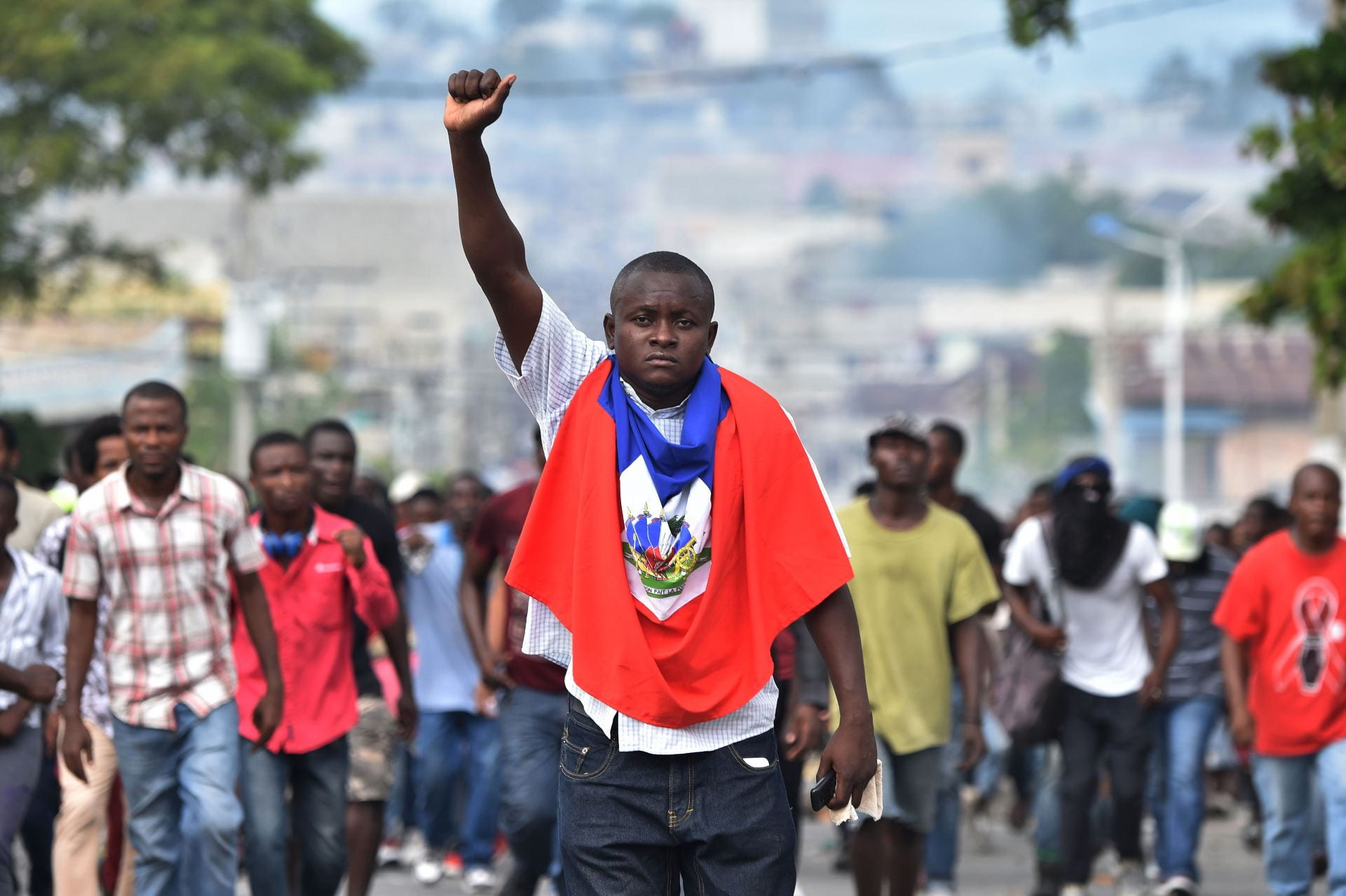By Jayla S. Carr
Political History
Haitis political challenges can be traced back to its revolutionary past. Following independence, the country faced the daunting task of establishing a functional government amid the ruins of colonial rule. The unmountable debt given to the Country of Haiti from its former colonial power, France, coupled with internal power struggles, set the stage for a volatile political environment that persists.
Haiti has a long history of corrupt leaders, the most notorious of whom were Francois Duvalier, also known as Papa Doc, and his son Jean Claude-Duvalier (Baby Doc), who ruled the country from the 1950s to the 1980s. The Duvalier family was known for its extravagant spending and mishandling of Haiti’s funds. Their regime was characterized by authoritarianism and totalitarian rule, and they used techniques such as extortion, repression, and embezzlement of government funds to maintain their grip on power.
Following the reign of the Duvaliers in Haiti, the country became even more susceptible to natural disasters, especially earthquakes and hurricanes, which further increased its economic vulnerabilities. The devastating earthquake that occurred in 2010 drew attention to the precariousness of Haiti’s infrastructure, leading to widespread destruction and loss of life. The subsequent challenges in rebuilding efforts imposed additional strain on the nations already fragile economy, further impeding its capacity to provide essential services and support its citizens. The earthquake has left many citizens, even years later, without stable housing or work.
Since then, Haitis government has experienced numerous periods of political instability, marked by changes in leadership, coup d’états, and challenges to governance structures. Frequent government changes have hindered the establishment of long-term policies and sustainable development initiatives.

Present Crisis
Civil unrest was ignited in Haiti in 2018 when the government announced its intention to eliminate fuel subsidies. The situation was further exacerbated by several contributing factors, including the misuse of loans from Venezuela, social inequality, substandard living conditions, and, well into 2020, the poor management of the COVID-19 pandemic. President Jovenel Moïse faced criticism for seeking to extend his term amid allegations of police brutality, human rights abuses, and violence against protesters. Following Moïses assassination in 2021, the country’s period of crisis has only been exacerbated.
The country has been overrun with gangs and has excelled to new levels, with the gangs taking over and now moving into the country capital, Port Au Prince, a prison near the country capital, and letting out 4,000 prisoners. Many of the country cities were already not safe due to brutal violence such as sexual assault and killings happening daily. Two hundred thousand plus citizens have been displaced from their homes due to the escalating violence. Haiti is home to over 4 million citizens, but the number of police in the country is around 13,000. This massive imbalance of police to citizens has made it very hard for Haitis Political Officials to establish any order within the country.

State of Emergency
Haiti declared a State of Emergency on March 3rd, The United States evacuated its Embassy, and the Regional leaders of the Caribbean Community and Common Market (CARICOM) held an emergency summit to discuss the Haiti crisis and establish a framework for a stable political transition. Furthermore, the President of Guyana, Irfaan Ali, commented on the meeting and let it be known that at the summit, plans were agreed upon to create a 7 to 9-member transitional government comprised of Haiti’s major political parties. The council will be in place and responsible for selecting a new prime minister. Recently, According to NBC News, the council has stated that its creation is almost complete. The group hopes to restore Haiti and put it back on the path to legitimate democracy.
According to Al Jazeera, over 200 gangs are operating in Haiti, with two of the most extensive coalitions claiming Port-Au-Prince as their territory. The most infamous and the one who is making news waves is the leader Jimmy “Barbecue” Cherizer of the G9 gang, a former Haiti police officer who has been pushing for the resignation of Haiti Prime Minister Ariel Henry, whom former President Moise appointed. As of March 12, 2024, at the height of the violence and within days of the country calling for a state of emergency, Prime Minister Ariel Henry announced that he would be stepping down and “leave immediately after the inauguration of a new council.” However, Jimmy Barbecue does not like the idea and will resist the implementation unless he is given a seat at the council table. He has stated that the corruption of the “traditional politicians” has not done Haiti any good and are the ones “damaging the country.”
Since the state of emergency was announced the United Nations has estimated that 53,000 Haitians have fled the capital of Port-Au-Prince in March. Also, 1.64 million men, women, and children are facing severe acute malnutrition due to the rise of gang violence has only exacerbated the crisis. The percentage of those who rely on humanitarian aide for food has only increased. Before the crisis, Haiti’s urban and rural communities had long relied on their city and town markets, which are sustained mainly by the work of Madan Saras, the women of Haiti who buy, distribute, and sell food and other essentials in these markets, serving as the lifeline of the communities. Still, unfortunately, they have become targets for gang violence, especially in recent times. The gangs seek to assert their power over the towns, and thus, the markets have become a hotbed of criminal activity, which has contributed to the decimation of Haiti’s economy. This is just one example among many of the challenges the people of Haiti face.

Path of Uncertainty
Still, despite the council’s creation, a finalized plan has yet to be developed to assure Haiti and its citizens of a peaceful and stable environment. Kenya’s plans to assist the country and bring in military aid have been stalled, and the country’s future is uncertain. The government has been distressed for many years, and the plan to restore stability will require continued effort.
Several organizations are assisting the people of Haiti in the amid unrest. Here are a few of them:
Global Giving has information about several ongoing projects in Haiti aimed at assisting citizens.

